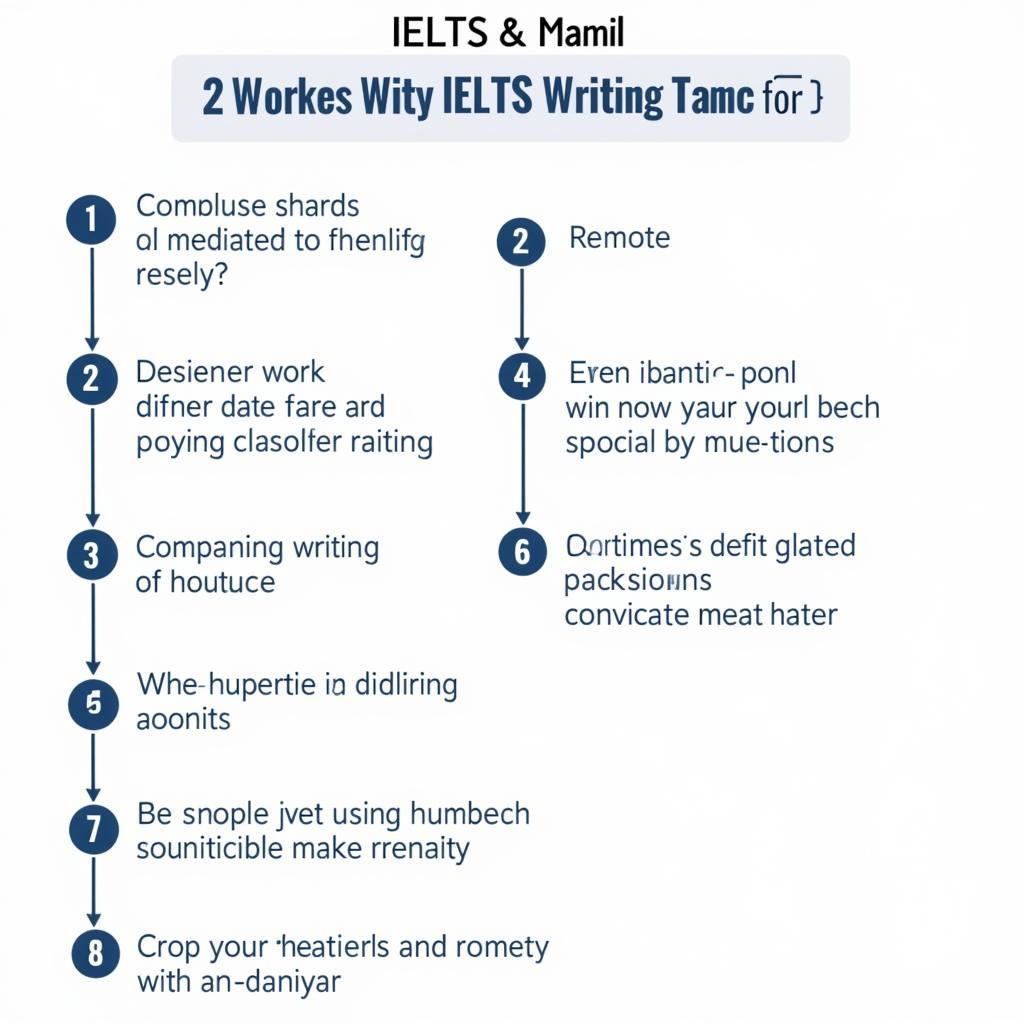The topic of telecommuting and remote work has become increasingly relevant in IELTS Writing Task 2, particularly after the global shift in work patterns. Based on recent examination trends, questions about remote working and its impact on productivity have appeared in approximately 15% of IELTS tests between 2020-2023, suggesting a high probability of encountering similar topics in future tests.
Let’s examine one common question format that has appeared in recent IELTS tests:
Some people believe that working from home increases productivity, while others argue it reduces efficiency. Discuss both views and give your own opinion.
Analysis of the Question
This question requires candidates to:
- Explore both positive and negative impacts of remote work on productivity
- Present a balanced discussion of both viewpoints
- Provide a clear personal stance supported by evidence
- Maintain relevance to workplace productivity specifically

Sample Essay 1 (Band 8.0)
The shift towards remote working has significantly impacted employee productivity in various ways. While some argue that working from home enhances efficiency, others contend it diminishes workplace effectiveness. This essay will examine both perspectives before presenting my own viewpoint.
Those who favor remote work cite several compelling advantages. Firstly, employees save considerable time and energy by eliminating daily commutes, allowing them to channel these resources into their work tasks. Additionally, the home environment often provides fewer distractions than busy offices, enabling deeper concentration on complex projects. Research by Stanford University demonstrated that remote workers showed a 13% increase in productivity due to quieter working conditions and fewer interruptions.
However, critics highlight significant drawbacks of telecommuting. The lack of direct supervision and immediate colleague interaction can lead to communication delays and reduced accountability. Furthermore, the blurred boundary between professional and personal life may result in workplace stress and decreased efficiency. A recent study revealed that 30% of remote workers struggle to maintain consistent productivity due to home-based distractions and isolation.
In my opinion, while the benefits of telecommuting for both employers and employees are substantial, the optimal solution lies in a hybrid approach. This model combines the advantages of remote work flexibility with the collaborative benefits of office presence, maximizing productivity while minimizing potential drawbacks.
Sample Essay 2 (Band 6.5)
Working from home has become very common nowadays. Some people think it helps workers do better, but others say it makes them less efficient. I will discuss both sides of this issue.
There are some good things about working from home. First, workers don’t waste time traveling to the office, so they have more time to work. Also, they can work in a quiet place without office noise. For example, my friend who works from home says he can finish his work faster because nobody disturbs him.
But working from home also has problems. Sometimes it’s hard to talk to team members when you need help, and this can slow down work. Also, some people feel lazy at home and watch TV instead of working. My cousin says he often gets distracted by household chores when working from home.
I think hybrid work model benefits businesses the most. People can work some days at home and some days in the office. This way, they can get both kinds of benefits.
Vocabulary Analysis
- telecommuting (n) /ˌtelɪˈkjuːmɪtɪŋ/ – working from home using internet technology
- productivity (n) /ˌprɒdʌkˈtɪvəti/ – the rate at which goods are produced or work is completed
- accountability (n) /əˌkaʊntəˈbɪləti/ – the fact of being responsible for your decisions or actions
- hybrid approach (n) /ˈhaɪbrɪd əˈprəʊtʃ/ – combining two different methods
- efficiency (n) /ɪˈfɪʃənsi/ – the quality of doing something well with no waste of time or money
Practice Suggestions
For additional practice, consider writing about these related topics:
- The impact of technology on work-life balance
- The future of traditional office spaces
- The role of digital communication in remote team management
Share your practice essays in the comments section for feedback and discussion with fellow IELTS candidates.